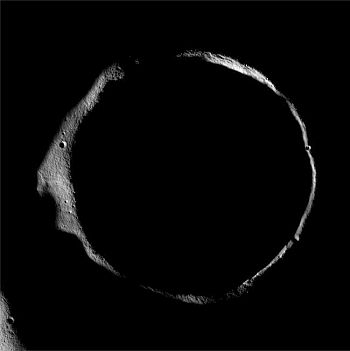 First India's lunar probe, Chandrayaan, spotted water on moon. Then US space agency NASA bombed the moon's surface to lend credence to Chandrayaan's findings. But why is the discovery of water on the moon so significant?
First India's lunar probe, Chandrayaan, spotted water on moon. Then US space agency NASA bombed the moon's surface to lend credence to Chandrayaan's findings. But why is the discovery of water on the moon so significant?
To begin with we now have an answer to the debate that has been on for decades over the existence of water on the lunar surface, T Alex, senior ISRO scientist who played a very big part in the Chandrayaan mission, told rediff.com.
Alex explained the process by which the NASA confirmed Chandrayaan's findings. The surface of the moon was hit with a spacecraft. The resulting detonation kicked up debris and then through infrared emissions they were able to come to a conclusion.
ISRO scientists further explain that the dream of owning a house on the moon would no longer be a dream, but could become a possibility in just about two decades.
Having found water, ISRO scientists have also identified craters that can be colonised by earthlings. The crater, located near the moon's north pole, has been christened as Erlanger. This is considered to be one of the top colonies conducive for human habitation and where structures can be set up.
These places are conducive for habitation as sun's rays falls obliquely around the periphery of the crater, explains Alex. Life on the moon, however, may not be similar to that on earth. In face, homes on the lunar surface would resemble more like an igloo, say scientists.
Besides this, the discovery of water traces would also help in manufacture of rocket fuel.
NASA too has pointed out that researchers and engineers interested in setting up science outposts or industrial facilities on the moon would no longer have to worry about the astronomical cost of launching water or additional fuel from earth.
Image: The Erlanger crater identified by ISRO for human habitation in the distant future.
Photograph Courtesy: NASA





